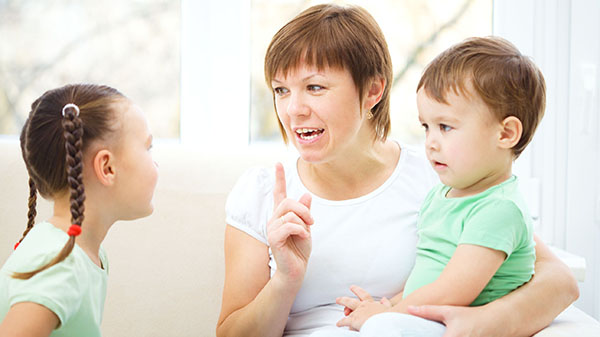What’s wrong here?
It’s dinnertime at the Johnson home. Mom made a beautiful dish and she is so proud of her accomplishment. She quickly snaps a picture, composes just the right caption and posts her recipe to Instagram, Facebook, Twitter and Pinterest. Throughout the next few days, she will check in every few minutes for comments and likes.
Dad is preparing for his fishing trip this weekend, so he has been scrolling through eBay and Amazon reviews for last-minute equipment he is missing. He forgot to mention this trip to his family, but he did post about it on Facebook.
Middle-school student, Timmy, won’t respond to Mom’s invitation to dinner because he’s too busy playing online video games with his friends.
Teenage daughter, Kelli, is in her room crying as she reads the hurtful things people are saying about her online because of a nasty rumor circulating at school.
Mom and Dad don’t know why Kelli’s grades are falling or why Timmy got into a fight at school last week.
_______________________________________________________
The term “social media” emerged in the mid-1990s and caught fire as people of all ages began to use technology to share content and engage in social networking.
Social media provides us with unimaginable benefits. For instance, Facebook allows us to connect with friends and family that we might otherwise lose touch with. Pinterest allows us to learn new skills, gather resources and discover new self-care activities. Twitter allows us to gain and share information instantaneously. Many would agree that these social platforms and others have done great things for us. However, these great benefits also have created great risks for families.
Social interaction
Facebook, for example, which reported 936 million active daily users in March 2015, touts its mission as giving “people the power to share” and “stay connected with friends and family.” However, a 2013 study by researchers at the University of Michigan in Ann Arbor, Mich., found that an increased use of Facebook predicted a negative effect on well-being over time, suggesting that Facebook undermines the basic human need for social interaction.
Many researchers have even hypothesized that the ease of rekindling old flames or forming new relationships via Facebook has led to an increase in marital infidelity and divorce. As a therapist, I see couples scrolling through apps on their phones or tablets in the waiting room and then grieving their ability to connect and be intimate while in session. While social networks claim to promote connection, it seems that these applications can work more like “anti-social networks,” destroying real connections in a person’s everyday life.
Social media also is attacking the well-being of our children. Research continues to show that children are spending more time on electronic devices than ever before, which is inhibiting their ability to recognize emotions. This has huge implications for their emotional well-being and behavior, as well as for their ability to understand important social cues.
Children need personal, one-on-one interaction to learn and grow. What they do not need is for adults in their lives to substitute this personal interaction with tablet, computer or television screens.
While technology has great potential to provide learning and fun for children, the American Academy of Pediatrics recommends limiting children’s screen time. For children under age two, they recommend zero hours of screen time. For older children, they recommend limiting entertainment screen time to less than two hours per day.
Despite these recommended limits, we know children spend many more than the recommended hours engaging in social media and other screen time activities. The result is often less personal interaction between children and their caregivers.
Children mimic what is modeled for them, including their technology and social media habits. Setting limits on technology use for yourself and your children can increase one-on-one interactions and create opportunities to build stronger parent-child relationships.
Wondering if you or your family is at risk? Challenge yourself this week. Write down how many times you pop open a social media account. Try to notice when and why you felt the need to do so. Try to notice what other activity is being neglected while the social media activity is happening.
Look for opportunities
Are you giving up an opportunity to share the gospel in the grocery store line? Are you neglecting a special moment with a child who so desperately needs your attention? Are you creating distance in your relationship with your spouse or pursuing connection with someone who is not your spouse? Do you feel closer to your friends or followers on social media than the real-life people around you? If you find yourself saying yes to these questions, it may be time to disconnect with social media and connect instead with the people in your life.
Editor’s Note — Melissa Carlisle is a counselor with Pathways Professional Counseling, a ministry of the Alabama Baptist Children’s Homes & Family Ministries.






Share with others: